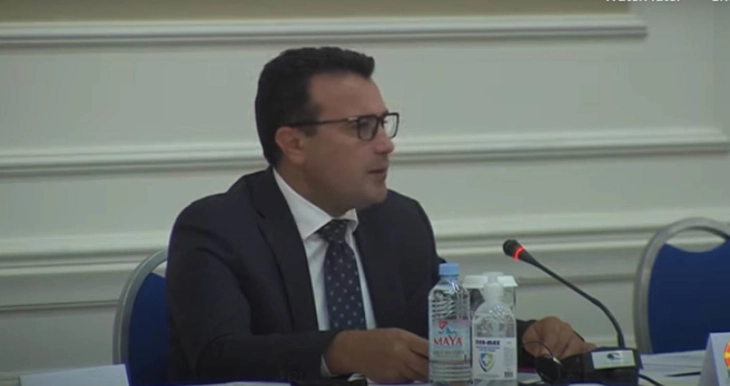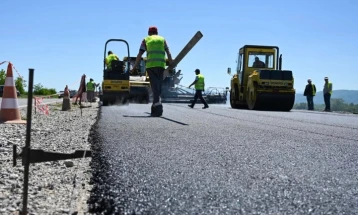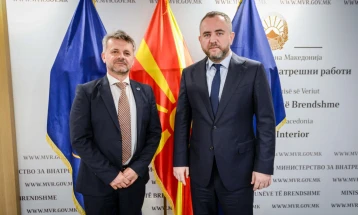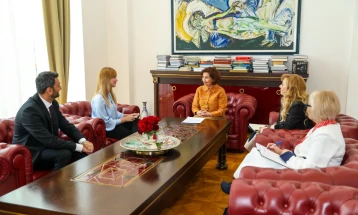PM Zaev: New impetus needed in enlargement process

Skopje, 30 September 2021 (MIA) – All EU member states accepted the decision the European Commission made in March 2020 and agreed that the EU integration of the Western Balkans is a geostrategic investment in the peace, stability, security and economic growth of the continent and that the region is a part of Europe and a geostrategic priority of the EU. Unfortunately, Bulgaria has blocked and is still blocking this decision. I honestly hope that what you say at this forum will present a new, crucial impetus and that the necessary steps will be taken on October 6 in Slovenia to unblock EU enlargement, Prime Minister Zoran Zaev told the 8th Western Balkans Civil Society Forum organized by the European Economic and Social Committee (EESC), which is taking place September 30-October 1 in Skopje.
He underlined that the forum’s first topic of debate: how to enhance the accession process – a credible EU perspective for the Western Balkans, is crucial for the Western Balkans and the European Union as the enlargement blockade has called into question Brussels’ strategic interest of enlargement in the region.
“Our EU integration progress should be based on domestic reforms, EU legislation and European standards. In the spirit of European good neighborly relations, we’ll intensify talks with Bulgaria to resolve bilateral issues. In order to restore trust in the enlargement process and strengthen EU mechanisms for efficient integration of the Western Balkans, Brussels should ensure political leaders and civil society representatives from the region take part in Conference on the Future of Europe activities, as the region is an integral part of the European Union,” Zaev said.
He added that if the status quo prevails and there’s no chance for progress, disappointment caused by the blockade will spread like cancer to other Europeanisation processes in the Western Balkans.
In that regard, the PM stressed the importance of continuing implementation of national policies related to the Green Agenda for the Western Balkans, as part of the European Green Deal, supported by the EU’s Economic and Investment Plan for Western Balkans.
“Social partners and civil society play a key role in managing joint challenges and political, economic and social issues. This forum and similar activities can contribute to building civil society capacities, regional cooperation and exchange of expertise, which are part of the government’s top support policies,” Zaev added.
The government has managed through transparency, openness and accountability to bring institutions closer to citizens and involve them in policy creation via civil society organizations, associations, etc.
“This is our way of creating policies, laws, strategies that suit the interests and needs of all citizens and will provide an appropriate response to challenges and especially those caused by climate change. The government, civil society and the business sectors are equal partners in this process. We’ve demonstrated commitment to promoting all pillars and processes that are part of our efforts,” Zaev noted.
He pointed as examples the launch of social dialogue in the early stages of the COVID pandemic, aimed at mitigating the health effects and saving jobs, as well as the just transition from fossil fuels to renewable sources of energy in which North Macedonia is a regional leader, social justices as a constant fight to promote equal society for all, and also underlined North Macedonia’s green agenda and preservation of natural treasures.
“These are some of the many projects, programs and policies we have built into the Action 21 and Europe at Home agendas aimed at the Europeanization of North Macedonia,” Zaev underlined.
President of the European Economic and Social Committee Christa Schweng, Commissioner for Neighborhood and Enlargement Olivér Várhelyi and State Secretary at the Ministry of Foreign Affairs of the Republic of Slovenia Gašper Dovžan have also been invited to participate in the event.
The main topics on the agenda are: how to enhance the accession process – a credible EU perspective for the Western Balkans (new accession methodology, Economic and Investment Plan for the Western Balkans and Common Regional Market), the contribution of CSOs to the Green Agenda and sustainable development of the Western Balkans as part of the EU accession process; the state of social dialogue, as well as enabling civic space in the Western Balkans.







